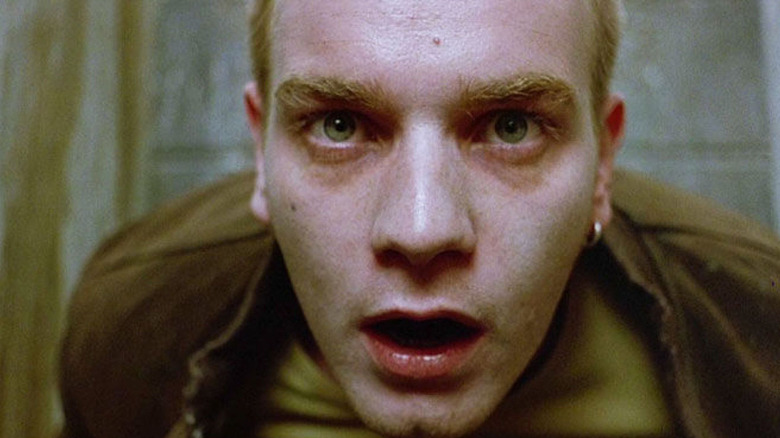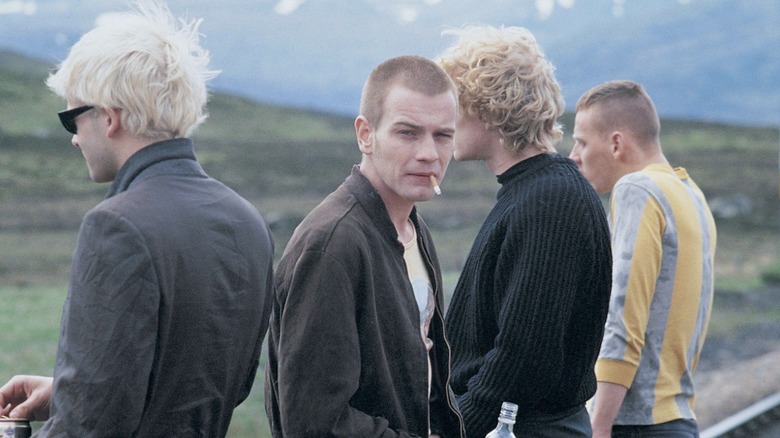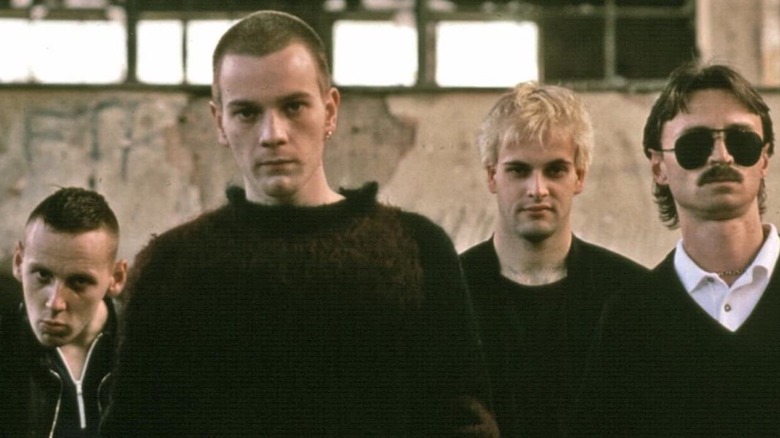The Ending Of Trainspotting Explained
Danny Boyle's 1996 film "Trainspotting" (adapted from the novel by Irvine Welsh) is a grimy, dark film about toxicity, both in terms of drug use and in terms of ourselves and the people we call friends. Mark "Rent Boy" Renton (Ewan McGregor) narrates his drug-addled misadventures alongside his friends Sick Boy (Jonny Lee Miller), Spud (Ewen Bremner), Tommy (Kevin McKidd), and Begbie (Robert Carlyle). Over the course of the film, Renton grapples with his heroin addiction and struggles to find a purpose to his life. The film pulls no punches about the darkness of addiction, with the characters failing to defeat their demons again and again as they spiral into more destructive behavior. Tommy also becomes addicted to heroin and dies of complications due to AIDS.
While Renton initially believes that to "choose life" means to submit to the pressures of consumerist society and mundanity, by the film's final scene, he re-appraises that belief and ultimately decides to break his cycle of addiction and toxic friends in favor of something more.
A moment of clarity
In the film's final scene, Renton is in bed sleeping next to Begbie after the gang have managed to score £16,000 selling heroin. Renton is essentially bullied into covering the remaining cost for the heroin, but despite his reluctance, the deal manages to go off without a hitch. Before bed at the pub, Renton approaches Spud and floats the idea that they simply take the money from Sick Boy and Begbie and get the hell out, but Spud refuses out of a combination of fear and loyalty. Sick Boy posits he'd happily take the money and run, and the brooding and chaotic Begbie gets into a violent altercation where he viciously beats a man.
Renton decides that Sick Boy and Begbie can't be trusted, and he takes the money while the others are seemingly asleep. He's about to leave when he notices Spud is still awake, watching him. Spud doesn't alert the others though, and allows Renton to escape.
Choosing life and all it entails
As Renton flees the hotel, he doesn't offer excuses for his actions. He's candid about ripping off the crew, and while he feels no remorse for betraying Begbie and Sick Boy, he does leave £4,000 in a safety deposit box for Spud, who, according to Renton, didn't hurt anyone. Renton makes it clear he intends to use the money to get clean and to choose life, becoming a productive member of society. That means he has new vices: financial security, medical coverage, home ownership, consumerism, and the very banality he'd railed against while in the depths of his addiction.
Renton's final monologue and his broad grin indicate a hopefulness for the future as he finally puts the demons of his past behind him. While he managed to kick his heroin addiction, he'd found himself lacking meaning and a purpose in his life, but after falling back in with toxic people, he realizes that he does want something: to live a life in peace and prosperity and not get dragged down into the same destructive patterns over and over again. By taking the money and declaring his desire to choose life, Renton effectively breaks his self-destructive cycle of addiction and toxicity once and for all. In choosing life, he ultimately chooses freedom.


